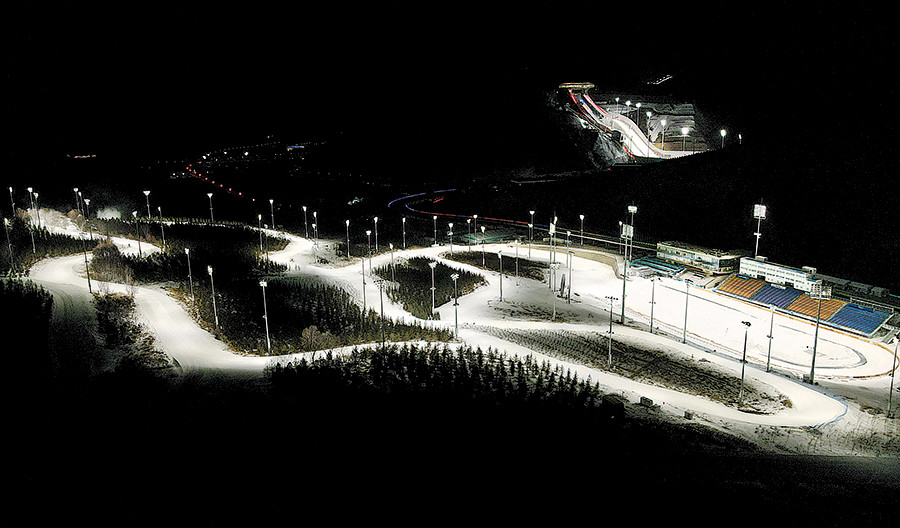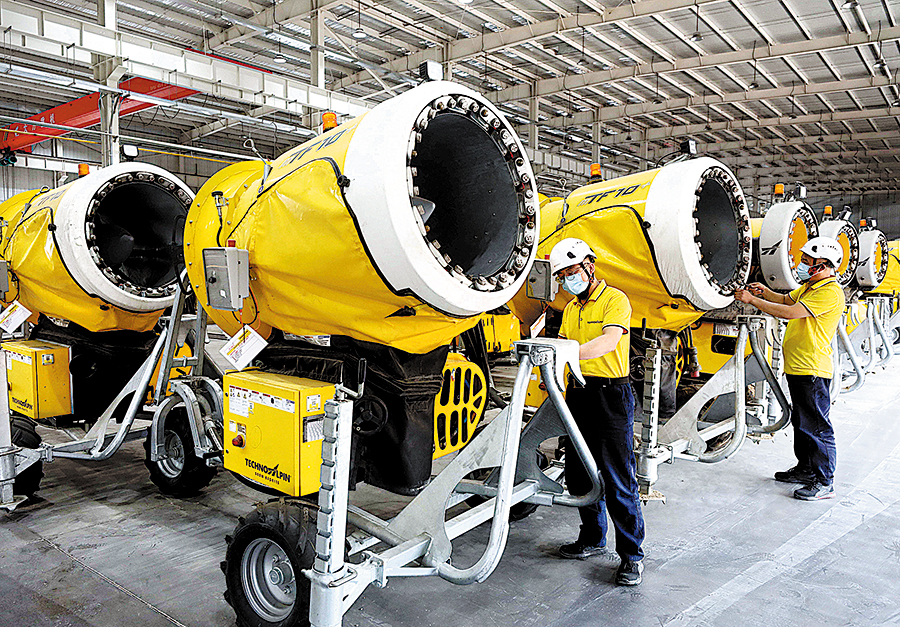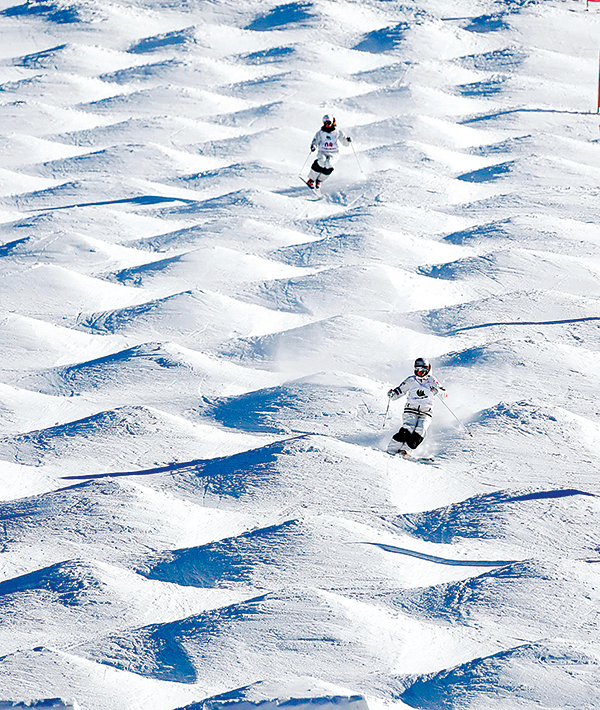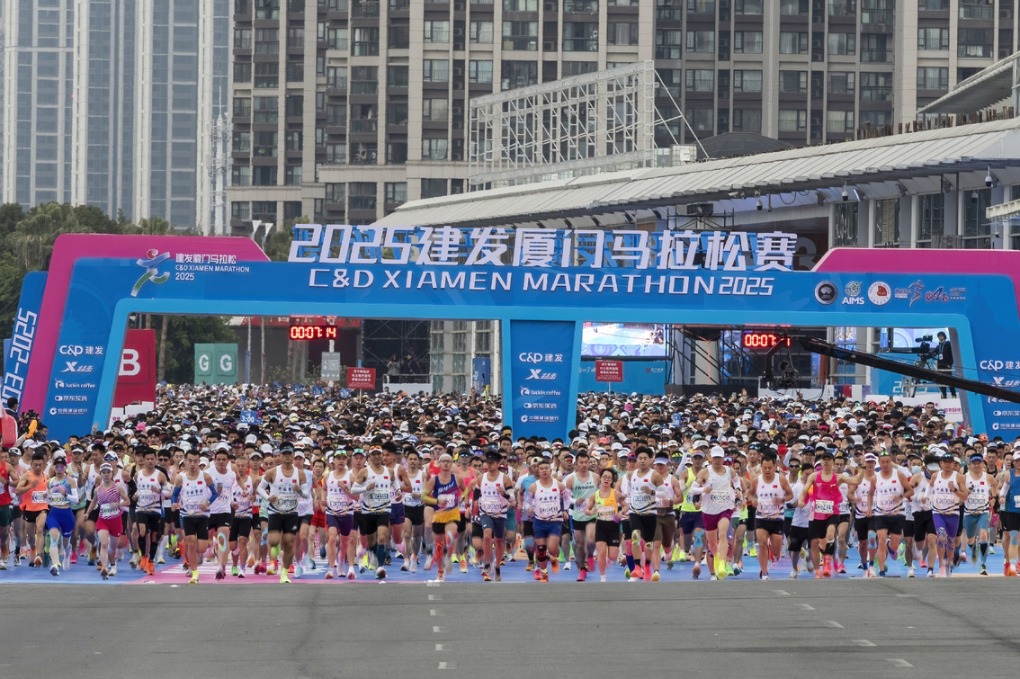Experts smooth over snow concerns


International experts say concerns over the use of artificial snow at Beijing 2022 are unfounded and ill-informed.
As common practice even at resorts in Europe and North America that enjoy heavy snowfall, the use of man-made snow is actually a more efficient and reliable alternative to natural snow when shaping competition courses for almost all skiing and snowboarding disciplines, according to the experts.
"I've done eight Olympic Games, and there's been snowmaking at every one of them. And the snow was exactly the same as it is outside here right now," said Joe Fitzgerald, a Canadian slope-building expert hired by Beijing 2022 as a consultant at Genting Snow Park, an Olympic venue in Beijing's co-host Zhangjiakou, Hebei province.
Snow, manufactured or naturally formed, has the same constituents, but the controllable and adaptable nature of man-made snow makes it a better fit than the natural version for developing ski courses, argues Fitzgerald.
"We use artificial snow to make sure that we have a consistent surface," said the former International Ski Federation freestyle coordinator, who has been involved in the development of Olympic courses at eight Games since 1988 in Calgary, Canada.
"You actually reduce injuries with artificial snow, because you have a consistent surface to operate on. And it's equal and fair for everybody to go down."
The claim that slopes made from artificial snow are riskier is biased, according to Fitzgerald, who adds that it's the specific technical requirements that decide the conditions of different kinds of courses-h(huán)ard or soft, firm or floppy-not where the snow comes from.

"Every course has different characteristics in terms of the snow density," said Fitzgerald, a Calgary native and former freestyle skier. "Alpine, Nordic, freestyle or snowboarding, they're very particular on how everything is prepared, and with manufactured snow you can actually adjust the snowmaking according to the characteristics that you need on the course.
"Again, the claim that man-made snow is more dangerous is a fallacy."
As the venue for all freestyle skiing and snowboarding events, except for the Big Air discipline which takes place in Beijing's downtown area, Genting Snow Park in the Chongli district of Zhangjiakou has completed and tested all its six courses prepared for aerials, moguls, halfpipe, slopestyle, parallel giant slalom and cross competitions at the Olympics.
The automated snowmaking system at the resort operates with a smart-control system that adjusts production based on climatic conditions and course functions, blowing snow only where needed and with the right amount.
"We have designed the latest snowmaking system. It's very efficient in terms of energy consumption and the use of water," said Davide Cerato, an Italian mountain operation expert, who is in charge of snowmaking and slope development in Zhangjiakou as a Beijing 2022 consultant.
For resorts to host world-class events nowadays, the installation of a snowmaking system is standard procedure-no matter how heavy or scarce natural snowfall is in the particular area, Cerato says.
"If it is natural snow, you have to work way more," he said. "You spend more resources to prepare the course with natural snow because you need to compact the snow with extra machinery and manpower to reach the FIS requirements which are very clear."
Nikolai Belokrinkin, an Alpine ski expert working in the Yanqing competition zone to help prepare the National Alpine Skiing Center for the Olympics, said that natural snow would not have sufficient density and consistency for athletes competing in one of the fastest skiing events.

The icy snow surface at the Alpine center, made from dense artificial snow compacted layer after layer, helps maintain the smoothness of the competition tracks so that each skier can race on almost the same conditions without being affected by obvious traces left by the previous competitor.
"The snow has to be really compact. They should not leave any tracks because this is a question of fairness that the last athlete has the same fair conditions as the first starter," said Belokrinkin, a Russian consultant who worked at his home Games in Sochi in 2014 and the 2018 Games in Pyeongchang, South Korea.
He said that the water sources are not a problem for the snow venues of Beijing 2022 and there are reservoirs for keeping and recycling water throughout the year.
"The snowmaking is not a waste of water. The water comes back to nature. It's fixed by air. And it's a circle. It always comes back," he said.
Most Popular
- Pistons tame Wolves despite Edwards' heroics
- City shows a bit more Pep with successive wins
- Arteta aghast at Brighton penalty as Gunners misfire
- A marathon year for Belgian amateur
- As life without Butler begins, Heat fails to ignite
- Gauff, Fritz lead US to United Cup tennis title






























